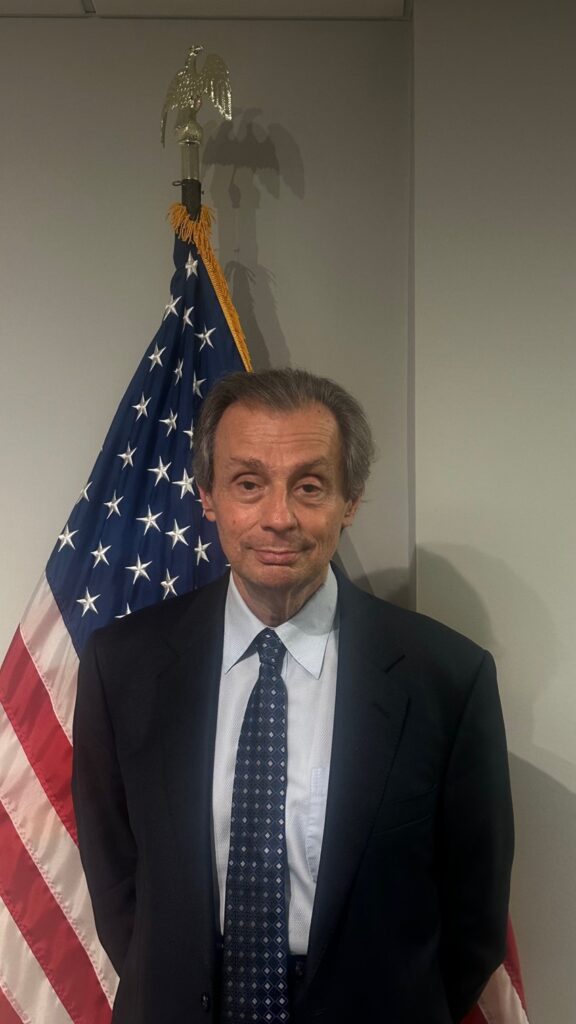President, Global Policy Institute; Professor of Political Science and International Relations at Bay Atlantic University, both in Washington, DC
Washington, DC – December 12, 2024 – Imagine an extended bottle cap that contains filtering agents capable of making polluted water drinkable. The cap has two ends. You screw one end on an empty plastic water and on the other end you screw another plastic bottle containing dirty water. You hold the bottle with the contaminated water up and gravity will make it go through the built-in filter. This way, thanks to the filtering, clean, safe water flows into the empty bottle below. This ingenious, small size and light weight device is made by a company based in South America called Filter Caps.
An ingenious device
As the company website https://filtercaps.co/en/ explains: “Focused on generating a universal design, Filter Caps is developed with the universal PCO 28 mm thread, which fits any type of bottle. Additionally, it uses 3D additive technology composed of minerals, metals, and natural extracts, making it accessible, affordable, cost-effective.”
Think of this cap as a fully functioning water treatment plant, minus the size and the cost. You can use the same Filter Cap several times before replacing it. It costs 5.89 per unit. Not super cheap, considering that most of its users are and will be low-income people. Still, this is far less than the cost of diarrhea medication. Aid agencies will be able to cover the cost. It is better to spend some money to keep people healthy than spending large sums to provide medical care for the sick. And in many cases sick people have no access to healthcare.
Do we really need this?
Does the world really need this device? Is unsafe water really such a big problem? Yes, it is in fact an enormous problem, affecting literally billions of people, mostly in developing countries.
People living in the developed world do not think twice about drinking tap water. Sure, in some municipalities water treated with chlorine or other disinfectants does not taste great. Hence the vast popularity of bottled water, (very often it is simply filtered tap water). But practically everyone in rich countries is confident that the water distributed to all households by the local water utility is safe to drink.
Well, not so in large parts of the developing world. In many regions most of the available water is unsafe on account of sewage contamination, old pipes, manure or chemical contamination from mining and/or industrial activities conducted without abiding to even the most elementary health and environmental standards.
Millions lack access to clean water
As a result, millions of people across the world who do not have access to clean water develop maladies caused by consuming polluted water. Without proper medical care, many of them die. Others develop permanent ailments that will greatly diminish their quality of life. This is a major global health problem.
Year ago, the United Nations created the Sustainable Development Goals, SDGs. Among them we find SDG 6: Clean Water and Sanitation. Therefore, the world community is well aware of the problem, and many governments, aid agencies and NGOs are directing resources so that polluted water will be purified and made safe for human consumption.
Still, a UN website warns us that much more work is needed:
- “Despite great progress, billions of people still lack access to safe drinking water. Achieving universal coverage by 2030 will require a substantial increase in current global rates of progress: sixfold for drinking water.”
- “Only 0.5 per cent of water on Earth is useable and available freshwater.”
- “Despite progress, 2.2 billion people still lacked safely managed drinking water services.”
- “Water pollution poses a significant challenge to human health and the environment in many countries.”
Part of the solution
The Filter Cap is not going to solve this enormous challenge all by itself. However, it is definitely part of the solution to this lack of safe water crisis. The small size of the device makes it transportable to rural areas and villages in Latin America, Africa or India that will not have water treatment plants any time soon. Being able to reliably turn polluted water into safe drinking water will not end poverty and under development. But it advances public health and quality of life in a major way for millions of people..
Legal Disclaimer:
PressLink distributes this news content on an “as-is” basis, without any express or implied warranties of any kind. PressLink expressly disclaims all responsibility or liability for the accuracy, content, images, videos, licenses, completeness, legality, or reliability of the information presented in this article. Any complaints, copyright issues, or concerns regarding this article should be directed to the author.
Note:
This content is not authored by, nor does it reflect the endorsement of, PressLink, its advertisers, or any affiliated entities. For inquiries or corrections related to press releases, please contact PressLink directly.
The post Filter Caps provide drinkable water at a low price first appeared on Presslink Media.


